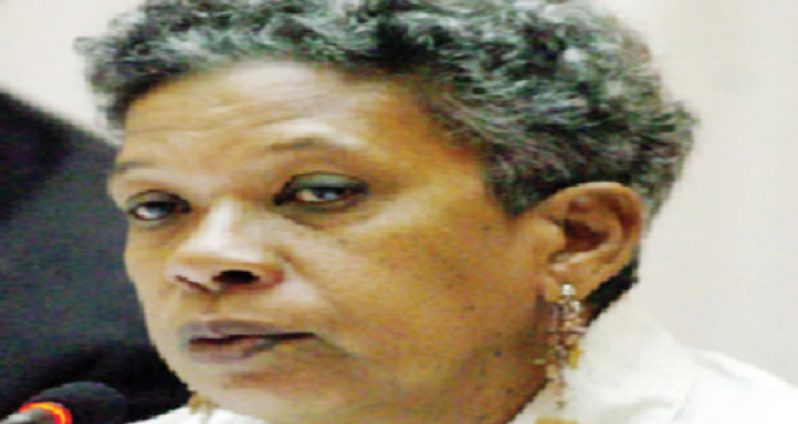SMALL and medium-scale mining have caused the majority of Guyana’s deforestation over several years and under a special agreement with Norway, the focus will continue to be on forest conservation, as gold-mining has been the primary source of the destruction.This was disclosed at the Arthur Chung Convention Centre last Saturday during a presentation made by Guyana Policy Forum representative Jocelyn Dow at a public consultation on Guyana’s COP 21 and intended Nationally Determined Contribution (iNDC) participation at the planned Summit to be held in Paris.
Despite the security nightmare of last Friday’s terrorist attacks in Paris, Guyana will attend the United Nations Climate Summit in early December, Governance Minister Raphael Trotman has confirmed.
Medium and small-scale gold-mining is currently practised and regulated. However, it inflicts severe environmental, health and social damage on the areas and people near mining operations.
The prevalence of corruption in the mining-oversight process reduces the government’s capacity to enforce the Mining Regulations and other policies for mitigating these effects.
All land-mining operations require the cutting of forests to make way for the mine pit, processing facilities, tailings heaps, settling ponds, and access roads. Furthermore, although there are limits on the size of individual small-scale mining claims, there are no limits on the number of adjacent small-scale parcels to which a miner may stake claim, thereby allowing for economies of scale that encourage miners to mine areas that require them to clear vast, contiguous tracts of forest.
The Mining Regulations currently in force fail to protect the environment adequately from the effects of mining operations. While certain restrictions are placed on the use of poisonous substances and the pollution of water sources with sediment, overall, there is little expectation that miners should take responsibility for harm they cause to the environment.
During the presentation it was also noted that the removal of forest cover for mining to occur is an obvious concern, since President David Granger has said that Guyanese need to diversify the economy from its historic dependence on the six sisters: rice, sugar, gold, diamonds, bauxite and timber.
However, Ms Dow noted that presently there are two new sisters: off-shore oil and forest carbon, although government is focusing on mining via increased regulation, and crucially increased enforcement of existing regulations.
She explained that Guyana’s MRVS (Monitoring, Reporting and Verifying System) is a newly created asset that gives Guyana a unique Reducing Emissions from Deforestation and Forest Degradation (REDD) plus advantage. “We are the only country in the world with a functioning national scale MRVS.”
Noting the important distinction between Unconditional and Conditional Contributions at the Climate Summit, Ms Dow said if a treaty is successfully negotiated in Paris, Guyana could only be held responsible for Unconditional Contributions.
She explained that Conditional Contributions provide Guyana an opportunity to solicit financial and other support that the country would require to undertake additional measures, which Guyana is aiming towards. “We need legally binding goals so to speak.”
Meanwhile, Guyana, Indonesia, Malaysia and Mexico submitted forest reference emission levels for technical assessment in the context of results-based payments for Reducing Emissions from Deforestation and Degradation (REDD+).
When a country implements REDD+, the results need to be measured against a starting point or benchmark. The forest reference emission level is the starting point.
As required by the UNFCCC, each submission includes information and rationale on the development of the forest reference emission levels, including details of national circumstances and, if adjusted, includes details on how the national circumstances were considered.
Governments are expected to agree on the outline of an agreement to be approved in Paris in 2015 and the World Wildlife Fund (WWF) has called on negotiators to guarantee the inclusion of the forest sector in the new climate regime.
By Rabindra Rooplall



.jpg)









